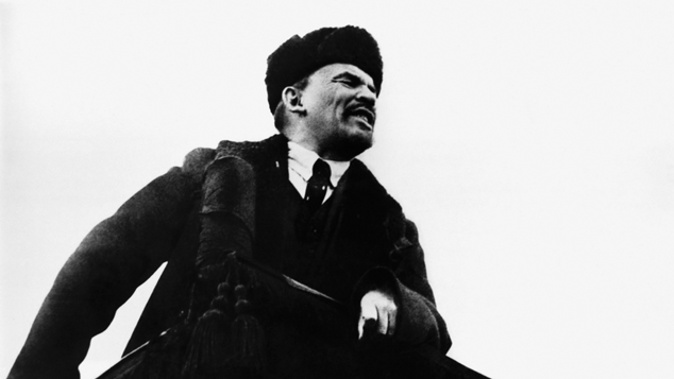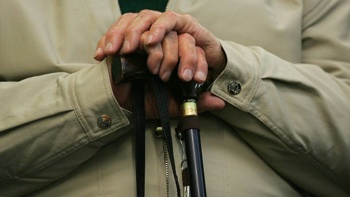
Highlights in history on this date:
1746 - Duke of Cumberland's forces defeat the Jacobite Scots at the Battle of Culloden, near Inverness, Scotland. The Scots lose more than 1000 men and most of the remaining prisoners are massacred.
1804 - War between British East India Company and Holkar of Indore begins in India.
1828 - Death of Francisco de Goya, Spanish painter.
1850 - Death of Marie Tussaud, Swiss founder of the famous waxwork museum in London.
1862 - France's Napoleon III declares war against Juarez, Mexican leader.
1879 - Death of Bernadette Soubirous, St Bernadette of Lourdes whose visions of the Virgin Mary led to the foundation of the shrine of Lourdes in France.
1883 - Paul Kruger becomes president of the South African Republic.
1906 - Pacific cable between United States and China is completed.
1910 - The University of Queensland founded in Brisbane; Brisbane's first permanent picture theatre, the Pavilion, opened with continuous screenings.
1912 - US pilot Harriet Quimby becomes first woman to fly across the English Channel.
1917 - Vladimir Ilich Lenin returns to Russia after years of exile.
1922 - Treaty of Rapallo between Germany and Soviet Union recognises Soviet Union as a "great power" and leads to resumption of diplomatic and trade relations.
1941 - In World War II, in Yugoslavia, German troops enter Sarajevo and the main synagogue is destroyed.
1942 - India's Congress rejects terms of self-government offered by Britain.
1945 - US troops enter Nuremberg, Germany, in World War II.
1947 - A French freighter with a cargo of nitrate fertiliser explodes at Texas City, Texas, killing more than 500 people and destroying most of the town's business district; In a speech to the South Carolina legislature, millionaire Bernard Baruch coins the term "cold war" to describe the tension between the United States and Russia.
1948 - Organisation for European Economic Co-operation is set up in Paris.
1951 - British submarine Affray sinks in the English Channel with loss of 75 lives.
1953 - British royal yacht Britannia is launched, just months before Queen Elizabeth II's coronation.
1964 - Nine men receive sentences of between 25 and 30 years for their part in Britain's 1963 Great Train Robbery.
1970 - Alpine avalanche plunges onto children's sanitarium at Sallanches, France, killing 72 people.
1972 - US Apollo 16 astronauts are launched towards the Moon from Cape Kennedy, Florida.
1975 - Cambodian government in Phnom Penh asks for truce and offers to yield to Khmer Rouge forces sweeping into city.
1978 - Nearly 180 people die when a tornado strikes the eastern state of Orissa, India.
1982 - Queen Elizabeth II proclaims Canada's new Constitution, severing the last colonial links with Britain.
1988 - Israeli commando unit, commanded by later opposition leader Ehud Barak, kills PLO military commander Abu Jihad in Tunis.
1990 - South African black leader Nelson Mandela makes an appearance at a huge pop concert held in his honour during a visit to Britain.
1991 - Death of Sir David Lean, British film director.
1992 - Italian financier Carlo de Benedetti and 32 others are convicted of fraud in connection with the 1982 collapse of Banco Ambrosiano.
1993 - Bosnian Serbs agree to allow Canadian peacekeeping troops to enter besieged Muslim enclave Srebrinica.
1994 - A British warplane is shot down on a NATO mission over the embattled Bosnian town Gorazde.
1995 - Iraq begins preparing its citizens for more hardship after formally rejecting a UN offer to sell $US2 billion worth of oil to buy food and medicine; US actor Marlon Brando's daughter Cheyenne hangs herself at her home on the South Pacific island Tahiti.
1996 - Prince Andrew of Britain and his wife Sarah Ferguson announce they are to divorce after 10 years of marriage; An Italian court finds disgraced former prime minister Bettino Craxi guilty on further charges of corruption and sentences him to eight years and three months in prison.
1998 - The International Monetary Fund adopts a "code of good practices" aimed at providing more information on the financial health of individual countries as the first step in averting future currency crises; Argentinian-born Alberto Calderon, considered one of the century's most influential mathematicians, dies.
1999 - Abdelaziz Bouteflika, favoured by the powerful military, wins the presidency of Algeria. His opponents, who withdrew to protest voter fraud, call the election a sham; Parliament in Guinea-Bissau votes overwhelmingly to put President Joao Bernardo Vieira on trial over charges of arms smuggling that led to civil war.
2000 - Two containers believed to hold pepper gas are hurled inside a crowded nightclub in Portugal just as the electricity is cut, killing seven people and injuring 35 others. No motive for the attack is determined.
2002 - Premier Wim Kok and the members of his ruling three-party coalition resign en masse in response to a report published that faulted the Dutch government and the UN in a 1995 massacre of more than 7500 Muslims in Srebrenica, Bosnia and Herzegovina.
2003 - The European Union holds a ceremony in Athens, Greece, where 10 nations scheduled to join the group in May 2004 sign an accession treaty. The 10 prospective members are Cyprus, the Czech Republic, Estonia, Hungary, Latvia, Lithuania, Malta, Poland, Slovakia and Slovenia.
2004 - Colombian authorities announce an embarrassing discovery as Peruvian President Alejandro Toledo arrives to discuss anti-drug strategies: a large stash of cocaine and heroin on the naval warship he is to visit.
2005 - Pakistan's President Pervez Musharraf arrives in India for a weekend of prayers, peace talks and cricket, his first visit since a disastrous summit in 2001.
2006 - A passenger train in northern Greece crashes into a truck at a crossing and derails, killing three people and injuring at least 40.
2007 - A 23-year-old student at Virginia Tech kills 32 people in the deadliest campus shooting in US history.
2008 - The US military free AP photographer Bilal Hussein after more than two years in custody in Baghdad.
2009 - President Barack Obama pledges in Mexico to help a deeply troubled neighbour in its battle against drugs and violence, including action to slow the dangerous flow of weapons from the United States.
2010 - Thick drifts of volcanic ash blanket parts of rural Iceland as a vast, invisible plume of grit drifts over Europe, emptying the skies of planes and sending hundreds of thousands in search of hotel rooms, train tickets or rental cars.
2011 - President Raul Castro draws a line in the Caribbean sand across which Cuba's economic reforms must never go, telling delegates to a key Communist Party summit that he has rejected dozens of suggested reforms that would have allowed the concentration of property in private hands.
2012 - United Nations Secretary-General Ban Ki-moon says the Syrian government is responsible for guaranteeing UN observers full freedom of movement to monitor the country's tenuous ceasefire.
2013 - The International Monetary Fund lowers its outlook for the global economy this year, predicting that government spending cuts will slow US growth and keep the euro currency alliance in recession.
2014 -Scores of female students kidnapped by Islamic militants from a northeastern Nigerian school are freed.
Take your Radio, Podcasts and Music with you









